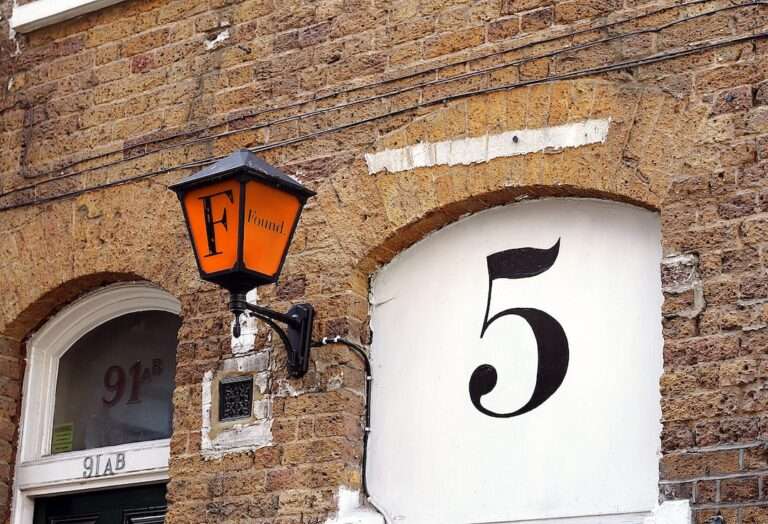Dream Symbolism – The A to Z Guide

Dream symbolism refers to the use of symbols in dreams to convey deeper meanings and messages. Dreams are a window into our subconscious mind, and they often use symbols to communicate with us. These symbols can be objects, animals, people, or even abstract concepts that hold significance in our waking lives. Understanding dream symbolism is important because it allows us to gain insight into our own thoughts, emotions, and experiences that may be hidden from our conscious awareness.
Dreams have been studied and interpreted for centuries, with many cultures and traditions placing great importance on their meaning. The ancient Egyptians, for example, believed that dreams were messages from the gods and used them as a way to predict the future. In modern psychology, dream analysis is often used as a tool for self-discovery and personal growth. By understanding the language of dreams and decoding their symbols, we can gain a deeper understanding of ourselves and the world around us.
The Power of Dream Symbols: How They Affect Our Lives
Dream symbols have the power to impact our waking lives in profound ways. They can provide us with insights into our deepest desires, fears, and unresolved issues. For example, if you frequently dream about being chased by a monster, it may indicate that you are running away from something in your waking life – perhaps a difficult situation or an unresolved conflict. By recognizing this symbol and its meaning, you can begin to address the underlying issue and find ways to overcome it.
Dream symbols can also influence our emotions and behavior. For instance, if you have a recurring dream about falling from a great height, it may reflect feelings of insecurity or a fear of failure in your waking life. This symbol can serve as a reminder to work on building your self-confidence and taking risks.
Furthermore, dream symbols can provide guidance and inspiration. They can offer solutions to problems or present new perspectives on challenging situations. By paying attention to the symbols in our dreams, we can tap into our subconscious wisdom and find answers that may have eluded us in our waking state.
Decoding Dream Symbols: Tips and Techniques for Interpretation
1. Keep a dream journal: One of the most effective ways to decode dream symbols is to keep a dream journal. This involves writing down your dreams as soon as you wake up, before the details fade from your memory. By recording your dreams regularly, you can start to identify patterns, recurring symbols, and themes that may hold significance in your life.
2. Pay attention to emotions: Emotions play a crucial role in dream symbolism. Take note of how you feel during and after a dream – are you scared, happy, anxious, or calm? These emotions can provide valuable clues about the meaning behind the symbols in your dreams.
3. Use free association: Free association is a technique commonly used in psychoanalysis that involves spontaneously saying or writing down whatever comes to mind when thinking about a particular symbol or image from a dream. This can help uncover hidden meanings and connections that may not be immediately apparent.
4. Research common symbols: Familiarize yourself with common dream symbols and their meanings. While symbols can be highly personal and subjective, there are often shared cultural associations that can provide insights into their interpretation. Books, online resources, and dream dictionaries can be helpful references for understanding the symbolism behind certain objects, animals, or events in your dreams.
A is for Animals: The Meaning Behind Common Animal Symbols in Dreams
Animals are often prominent symbols in dreams due to their rich symbolism and archetypal qualities. They can represent various aspects of ourselves or reflect our relationships with others.
For example, dreaming about a lion may symbolize strength, power, or leadership qualities. It could also represent aggression or assertiveness. On the other hand, dreaming about a bird may symbolize freedom, spirituality, or the desire for a new perspective.
Other common animal symbols in dreams include snakes, which can represent transformation or hidden fears; dogs, which can symbolize loyalty, protection, or friendship; and cats, which can symbolize independence, mystery, or femininity.
B is for Buildings: What Dreams About Houses and Buildings Reveal About Our Inner Worlds
Buildings are another common symbol in dreams and can represent various aspects of our inner worlds and personal lives. They often reflect our sense of self and the different areas of our lives, such as relationships, work, and personal growth.
For example, dreaming about a house may symbolize your sense of self or your personal identity. The different rooms in the house can represent different aspects of your life – the kitchen may symbolize nourishment and sustenance, the bedroom may symbolize intimacy and rest, and the basement may symbolize the unconscious mind or hidden emotions.
Dreaming about a school or workplace building may indicate your feelings about your career or education. It could reflect your ambitions, fears, or desires for success. Similarly, dreaming about a crumbling or dilapidated building may suggest feelings of insecurity or a need for change in a particular area of your life.
C is for Colors: The Significance of Colors in Dream Symbolism

Colors play a significant role in dream symbolism and can convey different emotions, moods, and meanings. They often evoke strong emotional responses and can provide valuable insights into our dreams.
For example, dreaming about the color red may symbolize passion, anger, or intense emotions. It could also represent vitality or energy. Dreaming about the color blue may symbolize calmness, tranquility, or spirituality. It could also represent sadness or depression.
Other common color symbols in dreams include yellow, which can represent happiness, optimism, or creativity; green, which can symbolize growth, renewal, or fertility; and black, which can symbolize mystery, the unknown, or fear.
D is for Death: Understanding the Symbolism of Death in Dreams
Death is a common dream symbol that often evokes fear and anxiety. However, in dream symbolism, death rarely represents literal death. Instead, it often symbolizes endings, transitions, or the need for change and transformation.
Dreaming about death may indicate that you are going through a significant transition or facing a major change in your life. It could represent the end of a relationship, a job, or a phase of your life. It may also symbolize the need to let go of old beliefs, habits, or patterns that no longer serve you.
It is important to remember that dreaming about death does not necessarily mean that something negative will happen. Instead, it can be seen as an opportunity for growth and renewal. By embracing change and letting go of the past, you can create space for new beginnings and personal transformation.
E is for Emotions: How Dream Symbols Reflect Our Emotional States
Dream symbols often reflect our emotional states and can provide insights into our deepest feelings and desires. They can serve as a mirror to our subconscious mind and reveal aspects of ourselves that may be hidden from our conscious awareness.
For example, dreaming about water may symbolize emotions and the unconscious mind. The calmness or turbulence of the water can reflect your emotional state – calm waters may indicate inner peace and tranquility, while rough waters may suggest emotional turmoil or conflict.
Dreaming about fire may symbolize passion, anger, or intense emotions. It could also represent creativity or the need for transformation. Dreaming about a storm may symbolize emotional upheaval or a sense of chaos in your life.
By paying attention to the emotions associated with dream symbols, you can gain a deeper understanding of your own emotional landscape and work towards achieving emotional balance and well-being.
F is for Flying: The Meaning of Dreams About Flying and Soaring Through the Skies
Flying is a common dream symbol that often represents freedom, liberation, and a sense of empowerment. It can symbolize the ability to rise above challenges, overcome obstacles, and achieve your goals.
Dreaming about flying may indicate a desire for freedom or a need to escape from a difficult situation in your waking life. It could also represent a sense of achievement, success, or personal growth.
The experience of flying in a dream can vary – you may be soaring through the skies with ease and grace, or you may be struggling to stay airborne. These variations can reflect your confidence, self-belief, or the challenges you are currently facing.
Dreaming about flying can be a powerful symbol of empowerment and can inspire you to take control of your life and pursue your dreams with confidence and determination.
Z is for Zombies: The Surprising Symbolism of Zombies in Dreams
Zombies are a surprising dream symbol that often represents feelings of being overwhelmed, trapped, or controlled by external forces. They can symbolize a sense of powerlessness or a fear of losing one’s individuality.
Dreaming about zombies may indicate that you are feeling overwhelmed by stress, responsibilities, or expectations from others. It could suggest that you are feeling disconnected from your true self or that you are being influenced by negative influences in your life.
Zombies can also represent unresolved issues or emotions that are “eating away” at you. They may symbolize repressed anger, fear, or trauma that needs to be addressed and healed.
By recognizing the symbolism behind zombies in your dreams, you can take steps to regain control over your life and address any underlying issues that may be holding you back.
Conclusion:
Understanding dream symbolism is an important tool for self-discovery and personal growth. By decoding the symbols in our dreams, we can gain valuable insights into our thoughts, emotions, and experiences that may be hidden from our conscious awareness. Dream symbols have the power to impact our waking lives, influence our emotions and behavior, and provide guidance and inspiration. By keeping a dream journal, using techniques for interpretation, and familiarizing ourselves with common symbols, we can unlock the hidden messages in our dreams and gain a deeper understanding of ourselves and the world around us. So, next time you have a dream, take the time to explore and interpret its symbols – you may be surprised by what you discover.
If you’re fascinated by dream symbolism and want to explore its depths, you might also be interested in understanding the symbolism of the moon. The moon has long been associated with mystery, intuition, and the subconscious mind. To delve deeper into this topic, check out the article “What Does the Moon Symbolize?” on Symbolism Hub. Discover the hidden meanings behind this celestial body and how it can influence our dreams and emotions. Read more
FAQs
What is dream symbolism?
Dream symbolism is the interpretation of the images, objects, and events that occur in dreams. It is the study of the meaning behind the symbols that appear in dreams.
Why is dream symbolism important?
Dream symbolism is important because it can help individuals understand their subconscious thoughts and emotions. It can also provide insight into their waking life and help them make decisions or solve problems.
What are some common dream symbols?
Common dream symbols include animals, water, flying, falling, teeth, death, and pregnancy. However, the interpretation of these symbols can vary depending on the individual and their personal experiences.
How can I interpret my dreams?
Interpreting dreams involves analyzing the symbols and events that occur in the dream and relating them to your personal experiences and emotions. Keeping a dream journal and discussing your dreams with a therapist or trusted friend can also help with interpretation.
Can dreams predict the future?
There is no scientific evidence to suggest that dreams can predict the future. However, some individuals may believe that their dreams hold prophetic meaning.
What is lucid dreaming?
Lucid dreaming is the ability to become aware that you are dreaming while still in the dream state. This can allow individuals to control their dreams and have more vivid and memorable experiences.
Can dream symbolism be different for different cultures?
Yes, dream symbolism can vary between different cultures and belief systems. For example, a snake may be seen as a symbol of evil in some cultures, while in others it may represent healing or transformation.





